Rare Voices: Colombia – Mónica Varela
Rare: Generally, how has COVID affected your country relative to the rest of the world?
Mónica Varela: Colombia has taken strong measures and we have been in lockdown since March 24. As of (April 16), we have 3,000 cases, 131 people have died, but over 400 have recovered. Of course, all sectors of the economy have been impacted.
Rare: How has COVID changed daily life in the communities in which we work?
MV: We work with small holder farmers. In spite of the efforts of the government and the private sector, supply chains have been affected and some communities are having a hard time bringing their produce to markets and obtaining inputs for their crops. These inputs include, for example, seeds, some ingredients for composting, tools, even things to pack their produce. The whole supply chain has been impacted.
Rare: What are the main COVID-related challenges in these communities?
MV: I think that currently the main challenge that rural communities face in Colombia is access to quality medical care. Hospitals in rural areas are precarious. Another concern of course is the impact in income. The government is making an important effort to support vulnerable families, but it is not easy to reach people in the countryside. And generally, people there are not in the banking system, so it’s hard for the government to do money transfers or anything like that.
Rare: How has COVID made our work with these communities challenging?
MV: We work in the field. We mentor both extension agents and farmers, providing advice on implementation of sustainable agricultural practices, helping farmers to adapt to climate change, helping them to protect soil, water, and biodiversity. Our challenge has been staying in contact, using technology, and continuing the work with the tools that we have available now.
Rare: How is Rare helping these communities? How is Rare trying to adapt to this reality?
MV: Our team doing its best to continue to work with communities. For instance, we are now training to 40 extension agents on behavior change methodologies via Zoom. For farmers we are creating different tutorials to continue working with them, enhancing the implementation of sustainable practices, and we are mainly using WhatsApp and phone calls.
Rare: Can you describe how else Rare’s work is contributing to the resilience of these communities?
MV: Even though our work is very face-to-face, even though our work implies field work, we’re trying to leverage technology. We’re trying to use all available tools that we have in order to continue working closely with them, to continue understanding their needs, understanding their problems. For example, they send pictures of the crops so we can assess what the problem may be and we can provide a solution. Or if we are not able to [help them], to connect them to the specific entity who may be able to solve that need.
Rare: What is giving you hope right now?
MV: I think that farmers are becoming more aware of the need to think about sustainability and to think about long-term productivity. For example, we have received videos of farmers that are using a tool we created called the soil health card. They use this tool in order to assess the condition of their soil and they contact us so we can help them design a plan to better manage that soil. It’s nice to see the interaction with the tool that we provided. We just sent it via WhatsApp, with a tutorial, and they are learning how to use it, and they are finding it useful. Something good is going to come with that.
In spite of the situation, we have seen that the motivation continues, that the interest in sustainability and the will to work with Rare is strong, so that gives me hope.


